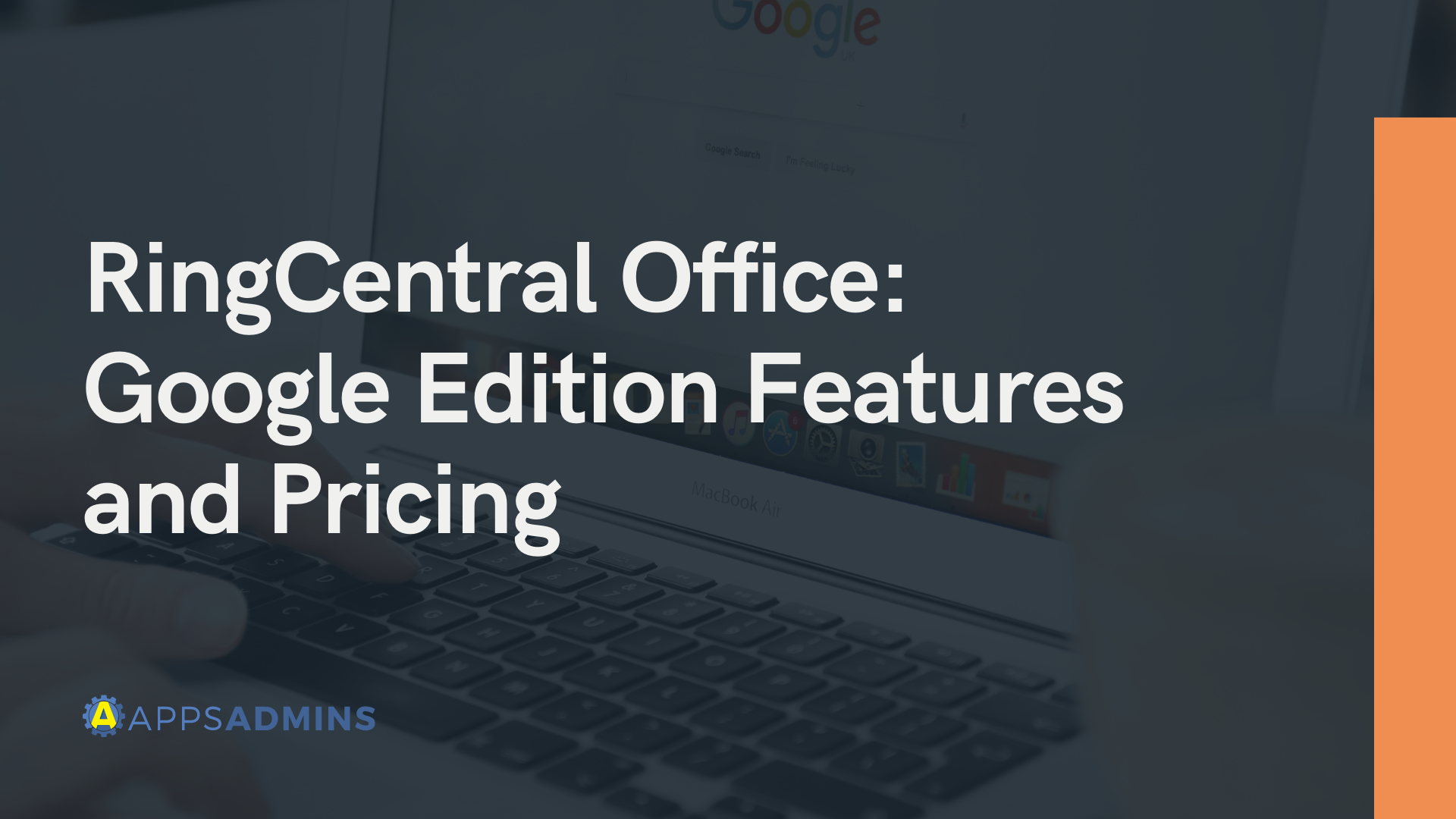G Suite Business Free for 30 Days
Sign up for a Free 30 Day Trial of G Suite Business and get Free Admin support from Google Certified Deployment Specialists.

 It's pretty much a statement of fact at this point that using a cloud phone service over a legacy, on-premise PBX solution is a better solution, both for the features offered and for the price they come at. However, what are the actual benefits behind Cloud PBX, and what are the requirements? Before you start looking into a cloud phone solution over what you're already using, read up.
It's pretty much a statement of fact at this point that using a cloud phone service over a legacy, on-premise PBX solution is a better solution, both for the features offered and for the price they come at. However, what are the actual benefits behind Cloud PBX, and what are the requirements? Before you start looking into a cloud phone solution over what you're already using, read up.
Benefits of a Cloud PBX System:
-
No need to pay for expensive PBX systems and other headaches
The fees involved in purchasing and mainting PBX systems are immense, as any seasoned business veteran knows. Paying for a VoIP solution is significantly cheaper, and upgrading it is also much easier, without requiring hardware that costs thousands of dollars.
-
No need to handle lines between the business and telco
PBX requires lines from the business to the local telco. However, with cloud phone service, you're using the Internet for all of your operations: this takes away all of the problems that come with dealing with the telco, including maintaining lines to them. You also don't need to maintain lines between multiple business locations.
-
Eases burden on IT while giving them more control
An IT budget can meet great strain with a PBX system, especially when upgrade season rolls around. The savings inherent in a cloud PBX system, however, will save them immense money and headaches, all while they can take advantage of the Internet to better handle the VoIP service and connections.
-
Combines traditional phone service with other great benefits
With traditioanl PBX solutions, a lot of business-vital solutions (conference calling, video chats, etc) can only be purchased from a third party. With cloud PBX, you can have these features bundled in, saving you the trouble of having to deal with costly third-parties.
Network Requirements for Business VoIP:
-
Sufficient bandwidth
This is the most important. A reliable connection needs enough bandwidth to support multiple parallel voice calls. This formula goes roughly 10 calls to a megabyte, meaning you'll want to buy a connection that has enough bandwidth to support all the calls you will be making, in addition to extra to account for high-volume traffic.
Failing to have sufficient bandwidth will lead to packet loss and call interruptions, which you absolutely don't want.
-
A great QoS-enabled router
QoS is "Quality of Service", and it's used by many routers to prioritize certain types of data over others. Cloud phone services, or VoIP, are usually prioritized by QoS, but some routers may not support it properly. You will need to purchase a commercial-grade router in order to ensure high Quality of Service.
-
A high-quality Internet connection
This may seem obvious, but you want a high quality Internet connection. The best connections can be seen in fiber optics, though cable and DSL can work in some circumstances, too.
-
Reliable cloud servers
One benefit of working in the cloud is that all data is stored off-site, meaning power loss or a break-in won't result in the loss of precious business data. Make sure that the cloud provider you're using has a reputation for high security and reliability to ensure that your data is safe.
More Information
We recommend working with RingCentral as a partner for reliable, secure cloud phone/PBX services. That being said, however, there is much more to learn about this solution- if you'd like to learn more about the benefits and requirements of cloud PBX, head here to learn more. If you have other questions, feel free to peruse our blog or contact us.
.jpg?width=818&name=appsadmins-svg-rules-1%20(2).jpg)







